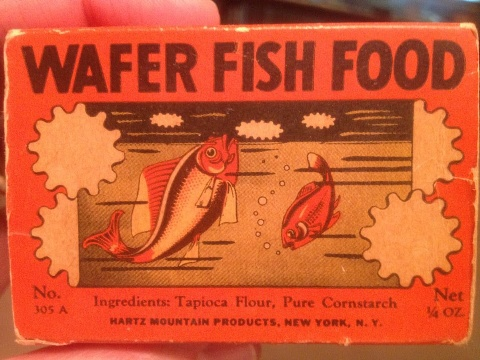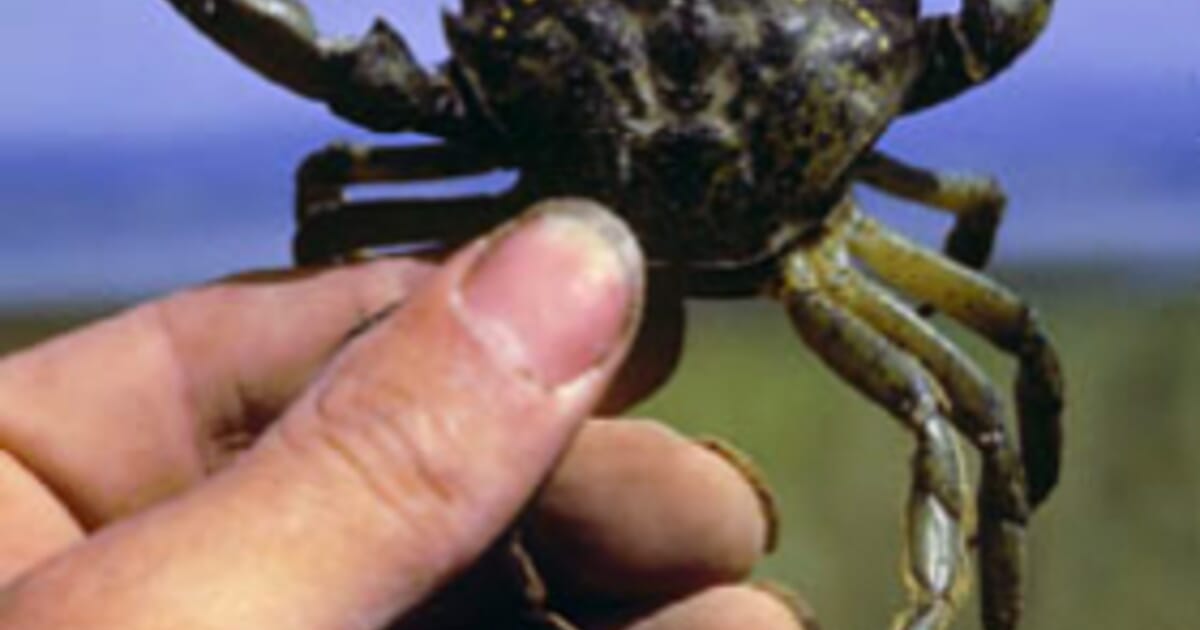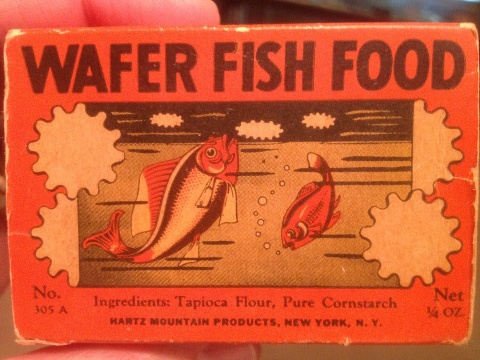A store local to me use to carry alot of Sera, small amounts of other food like nls. I went in one day for some 3mm nls and me and the owner started talking. He went on to say Sera was they only brand he would put above nls and that he imports in directly from Germany. I left shortly after that and order my nls from Dr. Foster and Smith. They have a new owner now and I believe he's a hikari fan since that's all they carry now.
What are some of your go to pellet foods?
- Thread starter TheReefer
- Start date
You are using an out of date browser. It may not display this or other websites correctly.
You should upgrade or use an alternative browser.
You should upgrade or use an alternative browser.
- Status
- Not open for further replies.
Captain America lmao!What you dont like susan lucci ?
The one shop I go to always seems to have free samples of Sera foods at the counter.Ive stopped taking them since I have so many in my drawer.

Captain America lmao!
The one shop I go to always seems to have free samples of Sera foods at the counter.Ive stopped taking them since I have so many in my drawer.




All kidding aside. Sometimes i wonder if we are just flat out overthinking it, myself included. Pops raised some sexy jags on aqueon pellets i know tons of members that use nothing but hikari, same goes for nls. All have long lived great looking fish
I think it has more to do with water quality and having a stress free environment rathar than the brand of food you choose.View attachment 1379866
All kidding aside. Sometimes i wonder if we are just flat out overthinking it, myself included. Pops raised some sexy jags on aqueon pellets i know tons of members that use nothing but hikari, same goes for nls. All have long lived great looking fish
Most of the decent quality brands will get the job done, no question about that. But if one wants to truly compare, then things definitely start to play out differently. What the average hobbyist often fails to understand is that there are over hundred yrs of research in this area, and a lot of it can be extrapolated to the tropical species that we keep in captivity. It doesn't mean that one way is wrong, or another way is necessarily best, but there are for certain nutritional goals that I believe every hobbyist would like to achieve. As a hobby, we should all be moving forward together, and promoting better quality diets, not backwards, by feeding things such as corn, soybeans, feather meal, or massive amounts of grains. That's not overthinking it.
I've been in this hobby long enough to remember the first commercial food that added garlic to their formulas for its antimicrobial, antioxidant, and immune stimulant properties, now many others have followed. I also recall the company that first used krill as a main component, and again many others have followed. Some companies have now moved in a direction where chemical preservatives are no longer even used. Not a terrible idea either, many consumers have asked for this. Herbivore foods that concentrate on aquatic plant matter, not terrestrial (like I have been preaching against for decades) have been created that are IMO superior to anything that was on the market even 10 yrs ago. Look how many foods now have a probiotic line of food, again, all great strides in a direction that is light yrs ahead of where we were back in the good ol days.

Certainly, and add genetics to that list as well - but at the end of the day ALL of these factor into the equation, so the goal for every hobbyist should be to ensure that there is no weak links whatsoever in the chain. And fish that are under stress, even if it's just stress from breeding, require optimum nutrition. Something as simple as a diet lacking a single vitamin, such as vitamin c, can have a huge impact on the health of a fish that lives out its life in a glass box.

 thefishsite.com
thefishsite.com
Commercial aquaculture typically has different goals than the average hobbyist, but if one can separate the wheat from the chaff, the science is mostly out there. Commercial fish farms that for example raise Acipenser transmontanus (White Sturgeon), don't switch their YOY carnivorous fish to pellets because it's simply more convenient. With caviar from their adults selling for $50-1,000+ an ounce, this is serious business, with millions of dollars involved, where things such as feed conversion ratios, roe production weight/size etc, and the overall health of their fish are under a microscope 24/7.
I doubt they would feel that they are overthinking it, either. At the end of the day we may all have different goals, mine have always been promoting sound husbandry practices. Whether it's diet related, or otherwise. I would like to think that quality information is what drives people towards MFK, not what drives them away. Kids talking out of their ass isn't what built this forum.
I've been in this hobby long enough to remember the first commercial food that added garlic to their formulas for its antimicrobial, antioxidant, and immune stimulant properties, now many others have followed. I also recall the company that first used krill as a main component, and again many others have followed. Some companies have now moved in a direction where chemical preservatives are no longer even used. Not a terrible idea either, many consumers have asked for this. Herbivore foods that concentrate on aquatic plant matter, not terrestrial (like I have been preaching against for decades) have been created that are IMO superior to anything that was on the market even 10 yrs ago. Look how many foods now have a probiotic line of food, again, all great strides in a direction that is light yrs ahead of where we were back in the good ol days.

I think it has more to do with water quality and having a stress free environment rathar than the brand of food you choose.
Certainly, and add genetics to that list as well - but at the end of the day ALL of these factor into the equation, so the goal for every hobbyist should be to ensure that there is no weak links whatsoever in the chain. And fish that are under stress, even if it's just stress from breeding, require optimum nutrition. Something as simple as a diet lacking a single vitamin, such as vitamin c, can have a huge impact on the health of a fish that lives out its life in a glass box.

Role of Vitamin C & Multivitamin Diets for Enhancement of Immunity, Growth & Biological Performance in Shrimps/Fish
Good nutrition in aquaculture systems is essential to economically produce a healthy and high quality product, writes Mr Prakash Chandra Behera, Technical Manager (Aqua Division), PVS Group, India.
Commercial aquaculture typically has different goals than the average hobbyist, but if one can separate the wheat from the chaff, the science is mostly out there. Commercial fish farms that for example raise Acipenser transmontanus (White Sturgeon), don't switch their YOY carnivorous fish to pellets because it's simply more convenient. With caviar from their adults selling for $50-1,000+ an ounce, this is serious business, with millions of dollars involved, where things such as feed conversion ratios, roe production weight/size etc, and the overall health of their fish are under a microscope 24/7.
I doubt they would feel that they are overthinking it, either. At the end of the day we may all have different goals, mine have always been promoting sound husbandry practices. Whether it's diet related, or otherwise. I would like to think that quality information is what drives people towards MFK, not what drives them away. Kids talking out of their ass isn't what built this forum.
I think it has more to do with water quality and having a stress free environment rathar than the brand of food you choose.
I bet your right.
I take this route as well. I like to mix in freeze dried and meaty foods (fish not mammal) equally.I like to vary it up. Ill try most of the "better" brands but fish do love the bio gold from Hikari. Currently mine are into the fluval bug bites. Even my fish that have only gone for flakes in the past love these things.
A buddy on here feeds his polys strictly bio gold as his pellet staple and they are thriving. Long lived and look healthy
Last edited:
I understand something of the use of fillers in food as well as fortifiers.
But I'm seeing Milk products in fish food?
This needs another thread.
But I'm seeing Milk products in fish food?
This needs another thread.
- Status
- Not open for further replies.



